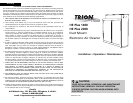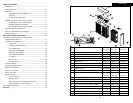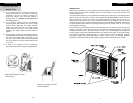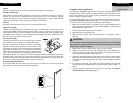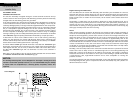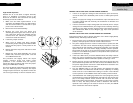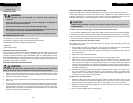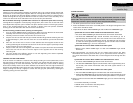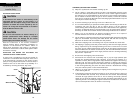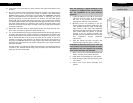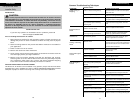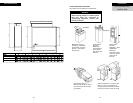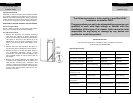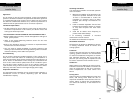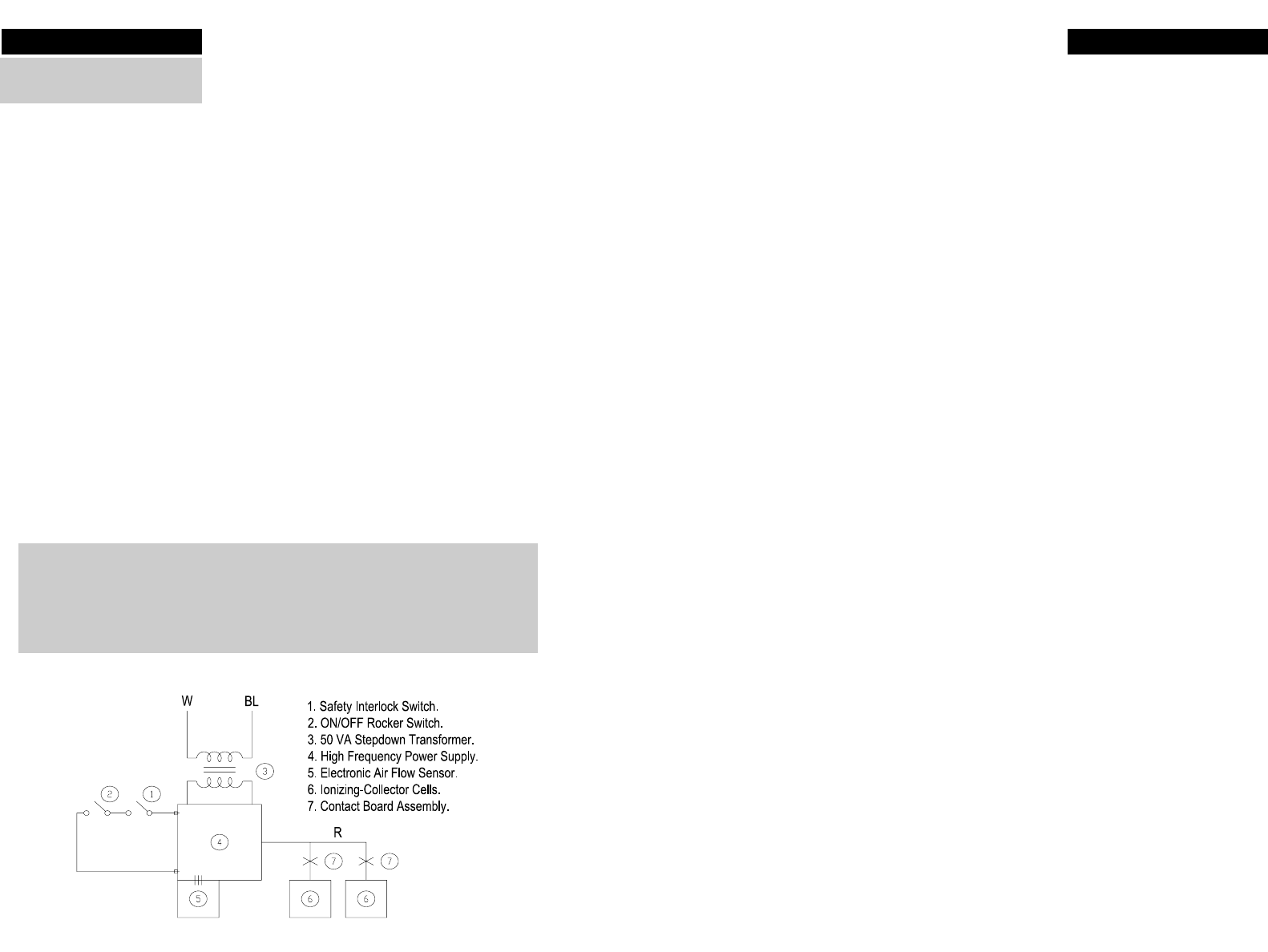
SECONDARY CIRCUIT
IONIZING-COLLECTING CELL
The cells are electrically energized through a contact terminal located at the top
center of each cell. The ionizing wires and alternating collector plates are electrically
charged while the interleaving plates are grounded.
If the space between the charged and grounded plates is bridged with conductive
or semi-conductive material, a short circuit develops. The bridging or short may be
caused by damaged plates, or foreign material lodged between/on the components.
Since the cell should be periodically removed from the unit to wash away collected
dirt, it is susceptible to physical damage. The cell also contains the ionizing wires,
which have been designed, due to their function, with minimal structure support
and are susceptible to breakage. Short circuit issues related to dirty or damaged
Ionizing-Collecting Cells are readily identified by the lack of illumination of the Red
CELL ENERGIZED light and quickly identified and isolated by a simple procedure.
To determine if a short circuit condition exists in one or both Ionizing- Collecting
Cell(s), turn the Electronic Air Cleaner OFF. Remove both Ionizer- Collecting Cells
from the cabinet. Re-position the Front Panel Assembly to the cabinet, turn ON/OFF
switch ON and ensure HVAC system blower is operating.
The Green INPUT POWER light should illuminate. If the Red CELL ENERGIZED light
illuminates, an electrical short circuit exists in one or both of the Ionizing-Collecting
Cells. Replace the cells, one at a time, to determine which cell has the short circuit.
The Red CELL ENERGIZED light will not illuminate if a short circuit condition is
detected.
Most short circuit troubles in the cell can be visually detected and corrected. Refer
to COMMON TROUBLESHOOTING TECHNIQUES (pg. 9).
NOTICE:
The Ionizing-Collecting Cells are not designed for field repair. Ionizing wires and
insulators can be field replaced; however, it is not recommended that you attempt
to replace other cell components (i.e. collecting plates, end plates, ionizer wire
supports).
Troubleshooting
22
Regular Dusting and “White Dust”
Your new Electronic Air Cleaner will efficiently clean and filter your household air. It will not
eliminate the need for regular dusting of your furniture and belongings. Duct-mounted air
cleaners can only clean air that reaches the air cleaner. Therefore, if the particulates are not
being carried to the air cleaner in the air stream, the air cleaner cannot remove them from
your home.
Occasionally a “white dust” may be noticed in bedrooms or newly furnished rooms. This is
mainly composed of lint which, because it is heavier than other particulates, settles before it
reaches your unit. This “white dust” is not mixed with airborne dirt particles, therefore, it is
clean and has no staining or soiling properties. Running the furnace blower continuously, day
and night, will help reduce this from occurring.
Ozone
Under normal operating conditions, all Electronic Air Cleaners produce minute quantities of
ozone as an incidental by-product. In fact, all electronic products, such as televisions, cordless
telephones and refrigerators, produce some amount of ozone. The average homeowner can
detect the smell of ozone concentrations as low as 25 to 100 ppb (parts per billion). The
design of this unit has been tested and ozone production is approximately half of the
published permissible limits established by the Environmental Protection Agency. These limits
recommend that the concentration of indoor ozone not exceed 50 ppb. Ozone is not harmful
in these concentrations. In fact, the ozone level in major cities can sometimes reach as high
as 100 ppb on a summer day. The addition of optional charcoal after-filters can help reduce
the smell of ozone generated by the air cleaner.
Normally, a new unit will produce more ozone than one that has been in operation for several
weeks. This is due to sharp corners or manufacturing burrs on the Ionizing-Collecting Cell
Plates and is normal. As the Electronic Air Cleaner arcs and zaps, the voltage is vaporizing
these areas and tends to round them off. This is part of the breaking-in period and the issue
is self-correcting. Also, high-altitude locations can be more susceptible to noticing the
presence of ozone.
An Ionizing-Collecting Cell that has been damaged or bent (the designed spacing between
electrically-charged and ground components has been decreased) may also produce an
abnormal amount of ozone.
Operation
3
For Qualified HVAC
Installer Only
Circuit Diagram



